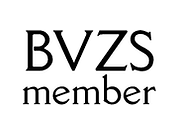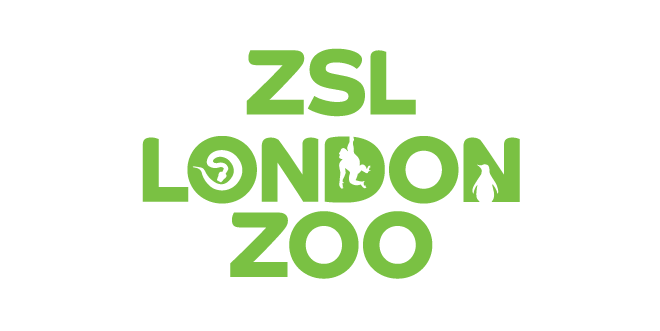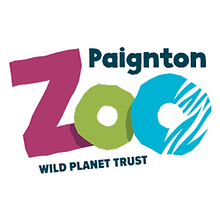Zoo Consultancy - throughout the UK & worldwide
Treating exotic species, as well as advice on behavioural and environmental management to treat and maintain health
Zoological and exotic animal rehabilitation and consultation
The management of exotic species is a highly specialist area requiring a highly holistic approach and specialist knowledge. Utilising my background in zoo management, animal behaviour and animal sciences, I offer a consultancy service enable a holistic/full team approach into the management and 'treatment' of ectothermic/poikilotherms and endothermic exotic species, considering multiple variables that must be considered to maintain musculoskeletal health. I offer a tailored approach that will consider all aspects of husbandry, training and environmental factors; this can only be achieved working closely with keepers. Unfortunately, traditional solely hands-on treatment may only treat the symptoms and hide the underlying cause (leading to repeated treatments without long-term improvement). We believe that whilst hands-on treatment can be an important part of the treatment regime for animals habituated to human contact, a comprehensive approach is the key to success.


My background
Alongside completing my MSc Veterinary Physiotherapy at Nottingham Vet school under veterinary pathologists, neurologist and physiotherapists, I have over 16 years' experience working with all taxa within zoos, and over 10 years' experience teaching zoo management, behaviour and physiotherapy/veterinary science students, many of whom are now in industry. I am also a part-time teaching associate at the university of Nottingham school of veterinary science and medicine.
I am currently conducting research into identifying lameness/gait in Komodo dragons (Varanus komodoensis), which has vastly increased my understanding of the importance of husbandry/environmental parameters, behaviour and how this manifests itself anatomically and predisposes an animal to lameness. My hopes are to develop a numerical grading system for use by keepers and veterinary professionals in the zoo industry. From this research I have also been asked to consult with major collections, such as ZSL London and the Madras crocodile bank and centre for herpotology (India), on the current condition of their dragons gait.
As well as treating a variety of species with varying pathologies (including Rhino, Gorilla, Giraffe, Komodo dragons, Tapir, Coati, to name a few), I have delivered numerous talks and workshops for, and in conjunction with a variety of zoological and educational organisation (BVZS, RVC, UoN, BHS, ABWAK, RAWG, BIAZA, Southern and Northern Veterinary Zoological Symposium, UKACT and vetstrust), on the importance of a holistic approach and behaviour for musculoskeletal and neurological health. After my first year of being invited to deliver a lecture at the British veterinary zoological society, I was kindly invited to become an associate member of the organisation, which historically only included vets and veterinary nurse members.
We have also conducted a workshop at collections such as Chester Zoo and Paignton Zoo for Zoo professionals (Keepers, foot trimmers, researchers, Vets and Nurses), on the identification of early lameness in Mammals, Birds and Reptiles, and approaches to managing long-term lameness. This workshop in 2022 became a 'BIAZA certified training' course, and will continue to be delivered along with our other available workshops and courses.
Last year we were also invited by Sarah Brando (Animal concepts) and Dr Sarah Chapman (Chapman zoo consultancy) to write a book chapter on the use of physiotherapy in geriatric captive animals, and risks that may be associated with more traditional physical therapy approaches due to stress or contraindications for certain pathologies and taxonomic groups. It also discusses the importance of a holistic approach, by utilising environmental and lifestyle factors to support recovery and the management of chronic disease.
As well as my current work, I am also an active member of a number of organisations:





.png)
What is considered?

Environment and management
Assessment of numerous variables such as enclosure design, fixtures and fittings, seasonal changes, substrates/surfaces. This helps maximise animals' musculoskeletal and neurological health, and aid recovery from pathology/maintain health in both endothermic and ectothermic species.

Behaviour and training
Evaluation of the animal's behavioural adaptations and how management/enrichment and training protocols could be utilised to aid recovery or maintain health. For example, the adaptation of enrichment devices or trained behaviours may become protective rather than potentially detrimental.

Activity and functionality
Rather than just encouraging activity and movement of the animals in our care, we consider whether the activity we are shaping is beneficial to health, or potentially contraindicated in relation to an animal's behavioural and anatomical adaptations, or currently pathologies.

Signalment
The animal's condition and other variables (age, sex, species, social behaviours) potentially predispose the animal to secondary conditions, or slowed recovery. We evaluate the management considerations which are important for the maintenance and recovery of the individual animal.

Injured or post-operative animals
Whether an animal has received an injury or is recovering from an operation, in conjunction with vets, a VP can provide pain relief and aid the healing process with a variety of manual and electrical therapies and bespoke rehabilitation plan. This can be done environmentally or via training protocols in the case of exotic animals.
Our services
On-site treatment - Throughout the UK
This will include onsite evaluation and treatment (environmental adaptation, exercise regime and treatment) for an animals current health conditions.
On-site consultation - Throughout the UK
This will will include a full evaluation and and report to help manage and maximise an animals musculoskeletal and neurological health. Or may be for the assessment of lameness/biomechanics, and guidance on long-term monitoring for a given animals.
Online consultation - Worldwide
This option is available for collections who are outside of the UK, or due to COVID restrictions. We will be able to conduct a consultation via an online platform (Skype, Zoom) to discuss the case. This will require further details such as images of enclosure, management protocols and veterinary history, to enable the best treatment possible.
Consultancy and education clients:
Case studies




East Midlands, UK
Devon, UK
Cheshire, UK
Cheshire, UK

Dudley, UK
RVC Zoo society (Zoo Soc), UK
London, UK
Arizona, USA

Bristol, UK
Yorkshire, UK

Yorkshire, UK
.png)
Tamil Nadu, India
What now?
Are you after a consultation to assess the animals management/environment to simply maintain health or prevent disease, then contact us to discuss this further. If the animal/s require treatment for a new or current condition then follow the steps below (applicable for treatment in the UK, for international cases please Contact us):
Step one: Download the veterinary consent form (word doc or PDF - links below), and fill in the owner, animal details and details of your vets (if you are a onsite zoo vet see vet referral below).
Step two: return the form to us via email (info@shackletonvetphysio.com), and detail any preferences for your session/visit, we will then forward the form to your vet and gain consent from the registered surgery.
Step three: we will contact you and confirm a time and date for your first session, first
sessions tend to be at least 1hr 30minutes, as this will include a full initial assessment
and treatment.
Veterinary consent form
For vets:
To refer a patient, simply download the veterinary consent form (either word or PDF), and complete the patient details and clinical history sections, advisories and return the form via email.
After your first session you will receive a full report detailing clinical findings, treatment administered, environmental adaptations and exercise prescription. This form will also be sent to your veterinary surgery to allow them to update the animal's veterinary records.






.png)
